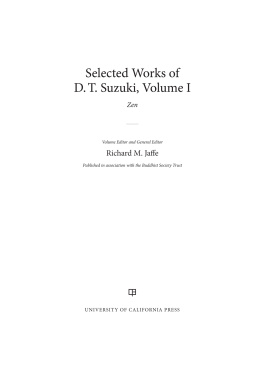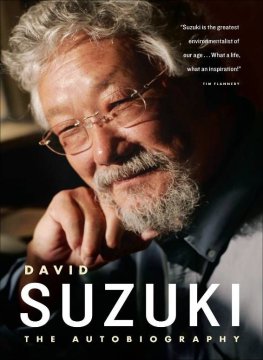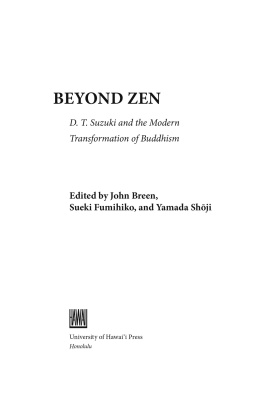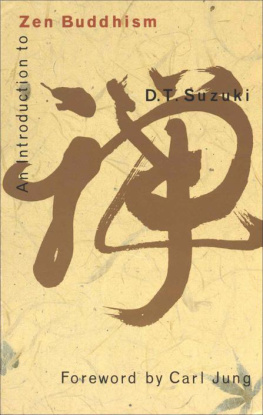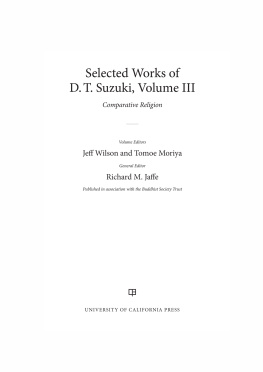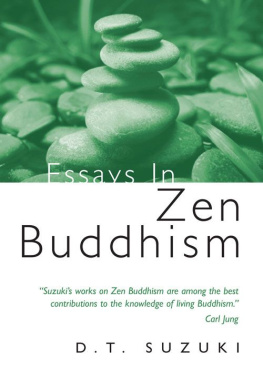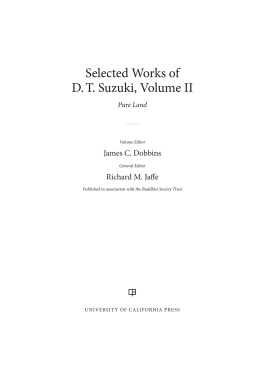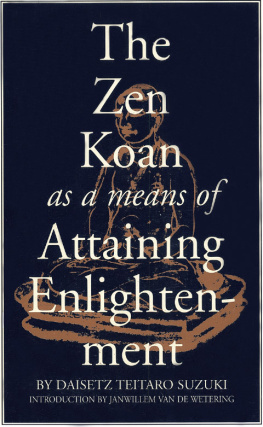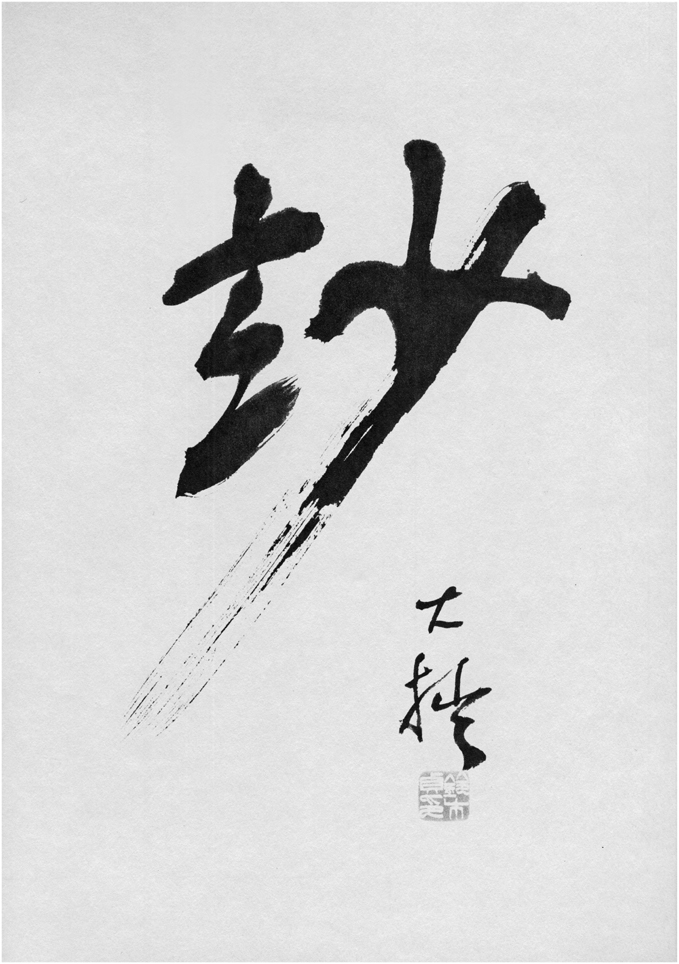ACKNOWLEDGMENTS
The cooperation and collaboration of numerous individuals and organizations were required to publish the Selected Works of D. T. Suzuki. The original idea to produce a multivolume series containing newly edited versions of Suzukis essays grew out of discussions with the president of the Buddhist Society, London, Desmond Biddulph, the Societys director of publishing, Nina Kidron (since retired), and Katsuyo Ban, chief administrator of the Matsugaoka Bunko Foundation in Kamakura, Japan, which controls the copyright to Suzukis literary estate and houses his library and papers. I am grateful to them and the other staff members of both the Society and the Bunko for having worked so hard to realize, at least in part, Suzukis wish to republish his English-language writings in a uniform edition, a vision he had discussed with the former head of the Society, Christmas Humphreys. Without the additional help and advice of Jeremy Crow, the former head of literary estates at The Society of Authors in London, who skillfully handled the complicated task of obtaining the rights to publish Suzukis essays, compiling the four volumes in the series would not have been possible.
In the course of editing the Zen volume and serving as general editor for the series, I have benefited from the assistance of colleagues, students, and friends around the world. I have learned a great deal in my discussions with the fellow editors of the books in this series: Mark Blum, James Dobbins, Moriya Tomoe, and Jeffrey Wilson. In bringing their particular expertise to bear on the project, they have greatly enriched the whole series. Mihoko Okamura-Bekku, who served as Suzukis longtime assistant and confidant, is a gracious interlocutor whose firsthand knowledge of Suzukis life and thought enhanced my understanding of his daily life and work. I also thank the many associates who answered questions about Suzuki, Rinzai Zen practice, and Japanese intellectual history, and aided me in navigating the twists and turns encountered as I worked on this project. This group of colleagues includes Michael Goldberg, Stefan Grace, Thomas Kirchner, Takashi Ogawa, Jeffrey Shore, Fumihiko Sueki, Norman Waddell, Wayne Yokoyama, and Shinichi Yoshinaga. In addition, Tomoe Moriya and Norman Waddell patiently answered my questions concerning the translation of A Recommendation for Quiet Sitting and other essays in the volume. I also am indebted to the bevy of graduate students, including, James Marks, Rebecca Mendelson, Matthew Mitchell, Jeffrey Nicolaisen, Michael Quick, and Jeffrey Schroeder for their assistance in correcting the digitized texts of Suzukis essays and helping standardize the numerous Chinese, Japanese, Pali, and Sanskrit names and terms. My editors at the University of California Press, Stacy Eisenstark, Reed Malcolm, and Jessica Moll, all provided the careful, invaluable assistance required to produce this and the other volumes in the series.
The Buddhist Society, London; Duke Universitys Asian-Pacific Studies Institute and Trinity College of Arts and Sciences; the Japan Foundation (via the Triangle Center for Japanese Studies); Mr. Luke Ding; and the Great Britain Sasakawa Foundation all provided financial support for the publication of the Selected Works of D. T. Suzuki.
Permission to include the essays in this volume came from a variety of sources. The Matsugaoka Bunko granted permission for the publication of A Recommendation for Quiet Sitting, Zen and Meditation, Dgen, Hakuin, Bankei, The Morning Glory, Unmon on Time, Self the Unattainable, The Secret Message of Bodhidharma, Life of Prayer and Gratitude (from The Training of the Zen Buddhist Monk ), and Zen and Psychiatry. Grove Press granted permission for the inclusion of On SatoriThe Revelation of a New Truth in Zen Buddhism from Essays in Zen Buddhism (First Series). The Eranos Foundation and Princeton University Press granted permission to include both The Role of Nature in Zen Buddhism and The Awakening of a New Consciousness in Zen. The American Buddhist Studies Center granted permission for the inclusion of Koan and the Five Steps from Zen Buddhism and Psychoanalysis. Finally, the Buddhist Society, London, gave permission to republish Early Memories, from The Middle Way . The clerics and staff at the temple Shkokuji and its Jtenkaku Museum in Kyoto, Japan, kindly granted permission to use the Ten Oxherding Pictures by Shbun that grace the cover of each volume in the series and are within the Zen volume. The calligraphic frontispieces by Suzuki in each volume are reprinted courtesy of the Matsugaoka Bunko. The portrait photograph of Suzuki taken by Francis Haar on each volume cover is reproduced courtesy of the Francis Haar Archive. I thank the staff of these institutions and publishers for allowing us to use these materials.

